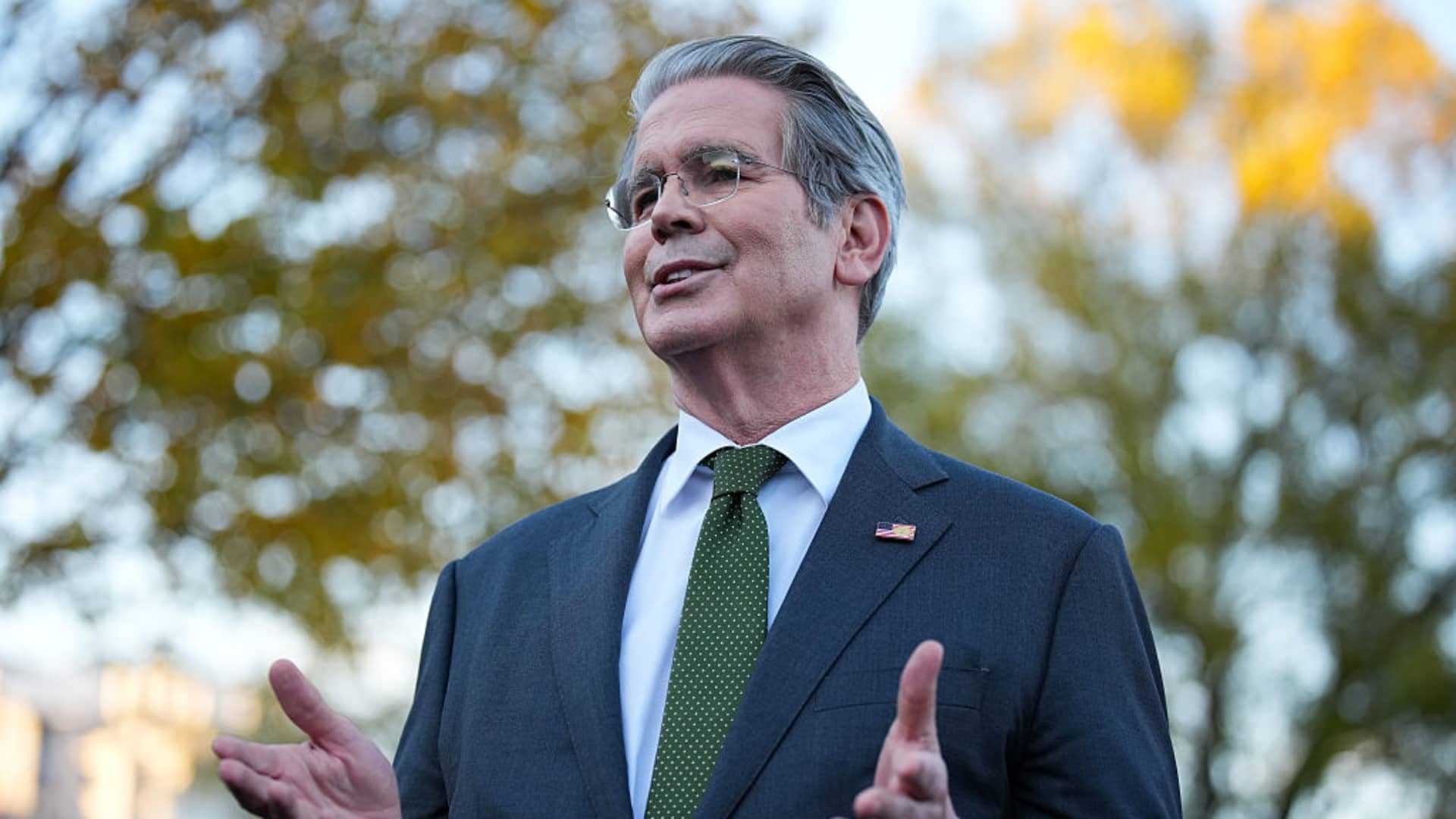U.S. Treasury Secretary Scott Bessent stated on Sunday that the country is unlikely to face a recession in 2026, expressing strong confidence in the economic direction under the Trump administration’s trade and tax policies. Speaking during an appearance on NBC News’ “Meet the Press,” he emphasized his optimism, saying, “I am very, very optimistic on 2026.” He described the current economic foundation as being set for robust, sustainable expansion without triggering inflationary pressures.
Bessent highlighted that elements of the Republican-led legislative package—officially named the One Big, Beautiful Bill Act—are still being rolled out and have not yet fully influenced economic conditions. Among its provisions are the permanent extension of the 2017 tax reductions initiated under President Trump, a financial benefit for seniors designed to ease the burden of Social Security taxation, and an expanded deduction for state and local taxes. Additional incentives include tax relief for tipped earnings, overtime compensation, and vehicle financing.
He also noted expectations for reduced health-care expenses in the near future, with further announcements anticipated from the administration during the week. However, a current legislative impasse over renewing enhanced subsidies under the Affordable Care Act marketplace may lead to higher medical costs for many Americans.
While expressing overall confidence, Bessent acknowledged difficulties in certain areas such as real estate and industries sensitive to borrowing costs. He pointed to the service sector as a contributor to price increases, though he anticipates that declining energy prices will help moderate inflation.
Kevin Hassett, chair of the White House National Economic Council, added that economic indicators for the final quarter might reflect softness due to the recent government shutdown. The 43-day halt in federal operations marked the longest such disruption in U.S. history.
Public sentiment remains divided. A recent NBC News survey revealed that roughly two-thirds of registered voters believe the Trump administration has underdelivered on economic performance and affordability. According to JPMorgan’s latest Cost of Living Survey, perceptions of financial well-being vary significantly by income level. High-income individuals gave their economic outlook an average rating of 6.2 out of 10, with over half assigning scores between 7 and 10. In contrast, those with lower incomes reported a more pessimistic average score of 4.4.
— news from CNBC
— News Original —
Bessent believes there won’t be a recession in 2026 but says some sectors are challenged
Treasury Secretary Scott Bessent said on Sunday the U.S. was not at risk of entering a recession in 2026 and claimed Americans would soon benefit from the Trump administration ‘s economic policies on trade and taxes. n n”I am very, very optimistic on 2026,” Bessent said in an interview on NBC News ‘ “Meet the Press.” “We have set the table for a very strong, noninflationary growth economy.” n nParts of the GOP ‘s massive spending package — the One Big, Beautiful Bill Act — are still going into effect and have yet to be felt in the economy, Bessent said. The new law makes permanent Trump ‘s 2017 tax cuts, along with a senior “bonus” to offset Social Security taxes and a bigger state and local tax deduction. The plan also has tax breaks for tip income, overtime pay and auto loans. n nHealth-care costs are also expected to become more affordable, Bessent added. The secretary said the Trump administration would have more news on that subject this week. n nFor now, a congressional deadlock tied to the extension of enhanced subsidies on the Affordable Care Act marketplace is expected to push up health-care costs for millions of people. n nBessent acknowledged that there are parts of the economy showing signs of struggle, including housing and interest-rate-sensitive sectors. He cited the services economy as contributing to inflation, claiming that lower energy prices will soon help to drive down prices. n nKevin Hassett, the director of the White House National Economic Council, also said on Sunday that economic data from the fourth quarter could show weakness because of the government shutdown. The 43-day congressional stalemate in Washington, D.C., was the longest in U.S. history. n nAround two-thirds of registered voters say the Trump administration has fallen short on the economy and the cost of living, a recent NBC News poll found. n nAmericans ‘ views of the economy largely depend on their income level, according to JPMorgan ‘s latest Cost of Living Survey. n nHigh-income respondents rated their confidence a 6.2 out of 10 — with 10 being the best — on average, the bank found. More than half of this cohort chose a rating between 7 and 10. In contrast, low-income consumers reported a 4.4 score on average.
